Nutrition for healthy eyes
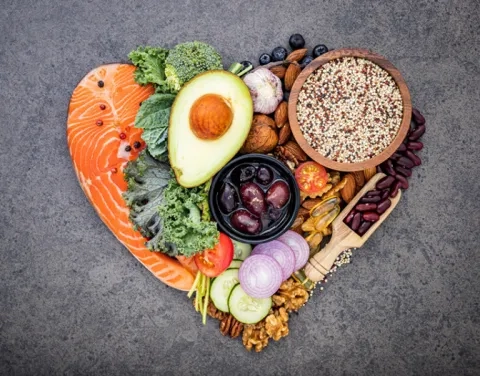
Did you know that by having a balanced diet that is low in fat but rich in fruits, vegetables and whole grains can not only help your cardiovascular health but your eye health as well?
Similar to how the heart relies on arteries to carry oxygen and nutrients from the heart to other body tissues, there are many tiny arteries that also supply oxygen and nutrients to the eyes.
Studies have shown that some nutrients help to maintain the overall eye health while there are others which have been found to help reduce the risk of certain eye diseases. Find out what are some of these nutrients which your body needs for optimal eye and overall health!
Lutein & Zeaxanthin
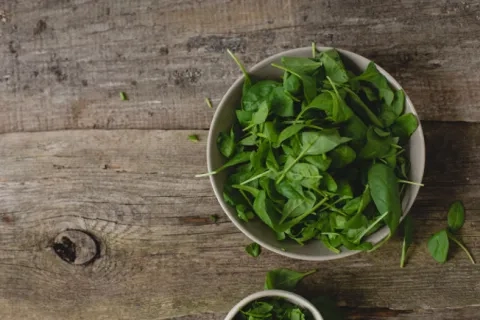
According to clinical studies, lutein and zeaxanthin carotenoids are the main pigments that help to protect the retina and enhance visual acuity1. They are important as they act as a defence mechanism to help prevent macular degeneration and cataract as you grow older. Hence, it is essential to try and include dark green leafy vegetables such as spinach, kale and broccoli in your diet. Another rich source of lutein and zeaxanthin is egg yolk.
Omega-3 fatty acids

Omega-3 fatty acids help to prevent dry eye syndrome as it maintains lubrication in the eyes in terms of tear function8. Oily fish such as salmon, mackerel and sardines are great sources of omega-3 fatty acids. For vegetarians, chia seed and walnuts are good alternatives.
Vitamin A
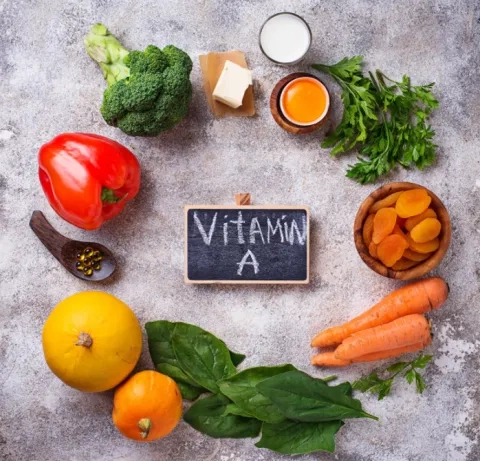
Vitamin A has always played a critical role in vision. It is a major component of the protein called rhodopsin and it is found in the retina of your eye to absorb light to prevent night blindness2. Carrots are a well-known source of vitamin A, but did you know that sweet potatoes provide an even higher amount? By including milk, eggs, red bell peppers, cantaloupes and rock melons in your diet, it can help you to increase your intake of vitamin A.
Vitamin C
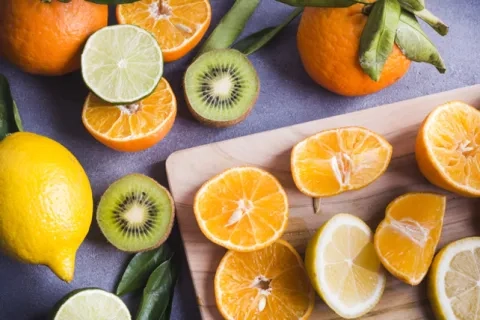
Vitamin C is a water-soluble and vital nutrient that is responsible for growth, development and wound healing of tissues in the body. It contributes to the immune defence and aids in absorption of iron as well. Numerous studies have linked vitamin C intake with decreased risk of cataract and coupled with other essential nutrients, it may also slow down progression of macular degeneration3. Vitamin C is generally found in most fruits and vegetables such as strawberries, oranges, broccoli as well as red and yellow bell peppers.
Vitamin E
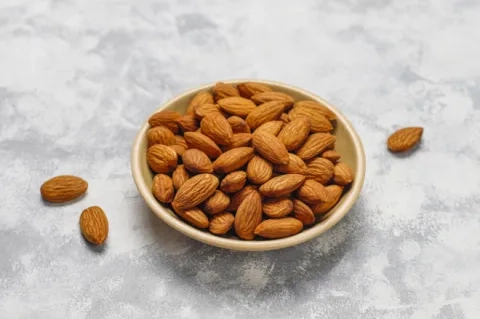
Vitamin E may reduce the risk of advanced age-related macular degeneration as mentioned by some studies4. Also, adequate vitamin E is essential for proper eye health as it acts as an antioxidant which can help to preserve your eyes against damaging free radicals. Most nuts contain high amounts of vitamin E such as almonds and hazelnuts. Sunflower seeds, avocado and spinach are some other options for consideration if you havenut allergy.
Zinc
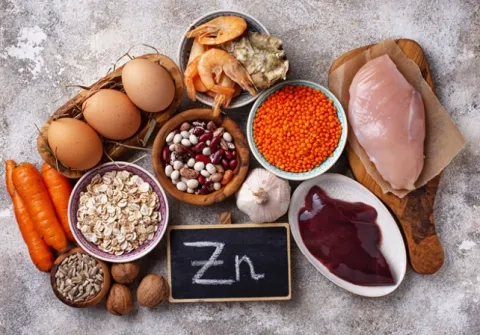
Zinc is an indispensable trace mineral or ‘helper’ as it has a key role in helping vitamin A to produce the protective pigment, melanin, in the retina. It is important in its function to reduce the risk of macular degeneration as well. Too much of zinc intake, however, can inhibit copper absorption so it is best to avoid zinc supplements unless recommended by a doctor5.
Some food sources that are rich in zinc include shellfish such as oysters and lobsters as well as meat like beef, pork and chicken. Ready-to-eat breakfast cereals and snack bars are also fortified with zinc to help provide the nutrient.
In essence, make a conscious effort to maintain a balanced diet and eat foods that are high in nutrients as this can benefit not just your eye health greatly, but your overall health as well.
Bon appétit!
References:
- Abdel-Aal el-SM, Akhtar H, Zaheer K, Ali R. Dietary Sources of Lutein and Zeaxanthin Carotenoids and Their Role in Eye Health. Nutrients. 2013 Apr; 5(4): 1169–1185.
- Vitamin A. National Institutes of Health website. https://ods.od.nih.gov/factsheets/VitaminA-HealthProfessional/
- Diet & Nutrition: Vitamin C. American Optometric Association website. https://www.aoa.org/patients-and-public/caring-for-your-vision/diet-and-nutrition/vitamin-c
- The 9 Most Important Vitamins for Eye Health. Healthline website. https://www.healthline.com/nutrition/eye-vitamins#section2
- Diet & Nutrition: Zinc. American Optometric Association website. https://www.aoa.org/patients-and-public/caring-for-your-vision/diet-and-nutrition/zinc
- 36 Fabulous Foods to Boost Eye Health. American Academy of Ophthalmology website. https://www.aao.org/eye-health/tips-prevention/fabulous-foods-your-eyes
- 10 best foods for eye health. Medical News Today website. https://www.medicalnewstoday.com/articles/321226#10-best-foods-for-eye-health
- 6 foods to help maintain your child’s eyesight. Myopia Institute website. https://www.myopiainstitute.com/eye-care/6-foods-to-help-maintain-your-childs-eyesight/
Recent Blog Posts
- 19 Oct 2022
- 19 Oct 2022
- 19 Oct 2022
- 19 Oct 2022
- 19 Oct 2022
